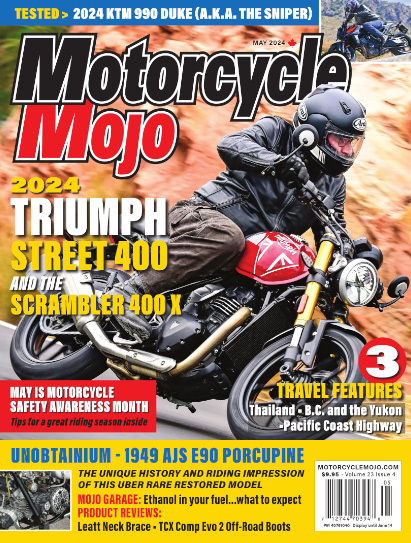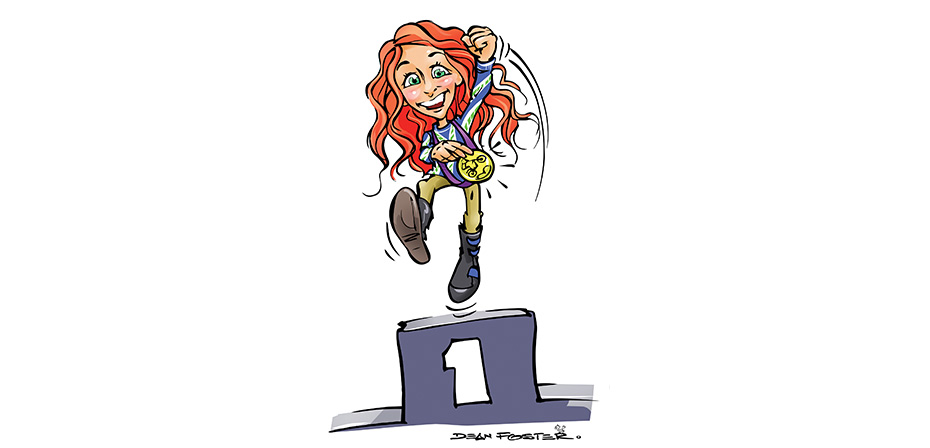We can always learn from each other, no matter how much experience we have. It’s a humbling moment when another person teaches you something new about the sport you love. Recently, I tried my hand at the Outlaw Trial competition held in Scotch Creek, B.C. The Outlaw Trial started in 1986 and has run every year since (except for the past two years, due to the pandemic).
I was lucky enough to be riding a Beta 300 SS, a refined trials bike that had more power than I could handle, but still offered nimbleness and smoothness throughout its gear range. Once again immersed in the trials community, I met up with some of the best riders in Western Canada. Riders like Sean Bird, a professional trials rider who is heading to Italy for the Trial des Nations this fall, and Stan Bakgaard, another professional who had just returned from competing in the Scottish Six Days Trial.
Although I pride myself on the skills I’ve gained on a dirt bike over the years, I know I still have a lot to learn. I rode the course with Richard Ouellet, a rider I had only met once. I’m not sure if he knew that he would end up being my teacher, spotter and therapist throughout the day, but he was all of those.
As we went through the sections, Richard would point out creative line choices, coach me through the sections, and give me pointers on how to manoeuvre over large logs safely. We rode each section twice, which was great, as it allowed us to prepare for the sections and have a better idea of line choice the second time around. It also made our arms to become jelly, which wasn’t so great.
Throughout the day, Richard would point out small issues with my body positioning, clutch and braking technique and my use of the bike’s suspension — many things I’ve been able to point out to people in the past while instructing dirt biking. These were fundamental skills I thought I had down, but it seemed that, on the slow speed trials bike, the movement had to be so precise to make it through the more demanding sections.
I found myself soaking up all the knowledge that was offered to me by Richard. I saw my line choices improve and felt more coherent with the bike as the competition went on. It was refreshing to once again be learning new skills and techniques which gave me the ambition to keep going and to improve through each challenge.
Halfway through the day, I had a realization. I remembered that, when I was working on my snowboard instructor certification years ago, the biggest takeaway was that you can’t build upon your skills until you can achieve timing and coordination in the sport. Every aspect of motorcycling involves timing and coordination: you can’t roll away from a stop unless you have it with your clutch and throttle, and you can’t safely turn until you understand when to look, brake and accelerate through a turn.
I realized that although I do have timing and coordination, I need more seat time to refine my trials bike skills. Practice is something we can all use a little — or a lot — of. Yet we find ourselves shying away from it because we only ever have a finite amount of time to ride. If that’s the case, on your next ride, focus on how you ride: do you notice any bad habits you’ve gained — simple things like coming into a corner too fast, coming to a choppy stop, or finding yourself not anticipating something that could’ve been avoided if you were looking further ahead?
As we finished the second lap of the course, I was a bag of mixed emotions. On one hand, I was disappointed I wasn’t immediately better at trials riding. On the other hand, I was really proud that I had made it through many sections with only two or three points while cleaning (getting zero points) on other sections (the idea is to gain as few points as possible). I also had to remind myself that everyone starts at the beginning. It may take some people longer to cross the finish line, but as long as you keep trying, you will accomplish your end goal.
At the end of the competition, we all gathered to review the results and rejoice in the day. I was reminded of how lucky we are to be part of such a great sport and community within motorcycling. I was encouraged when I was intimidated by the obstacles, there was constant cheering and helping other riders through sections.
Plus, I ended up first in my class! Of course, I was the only competitor in the class, but I still got my gold medal.










